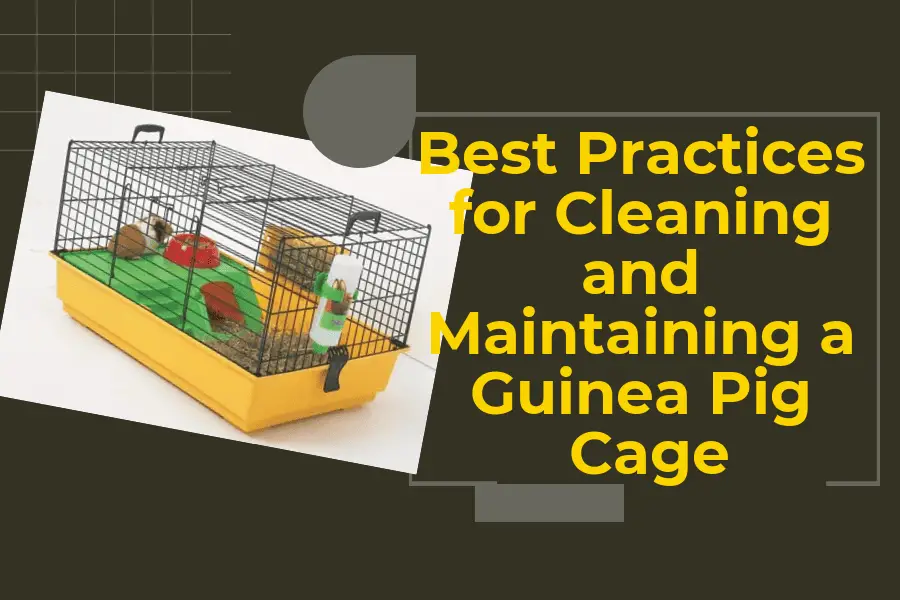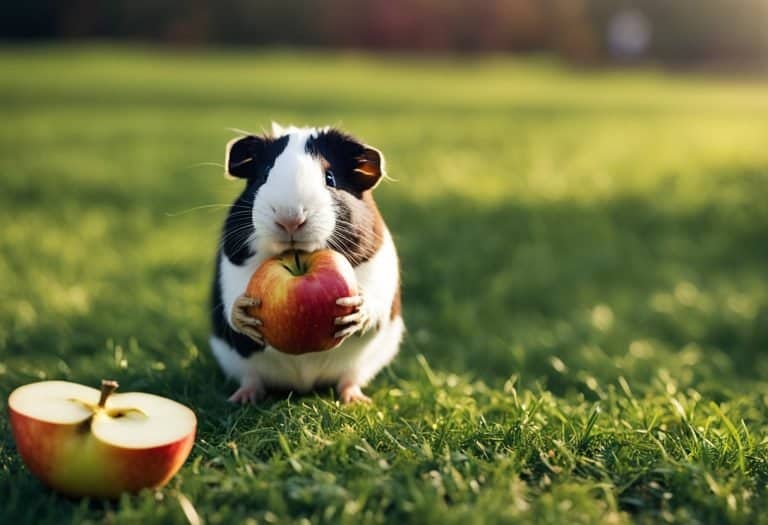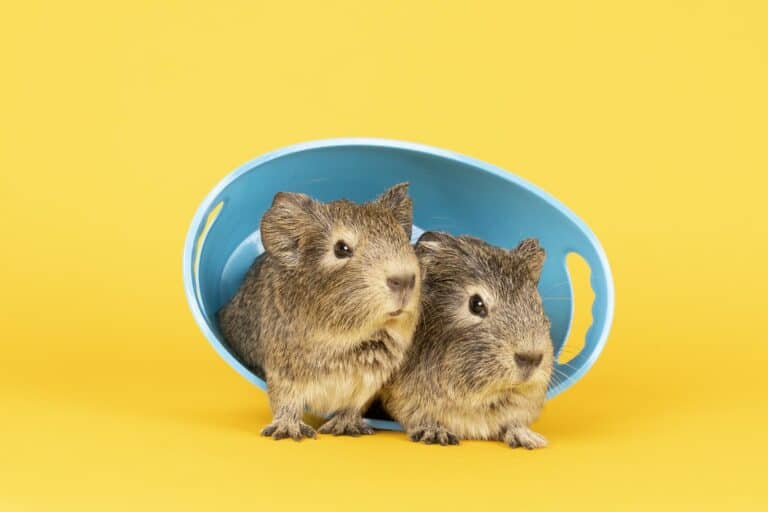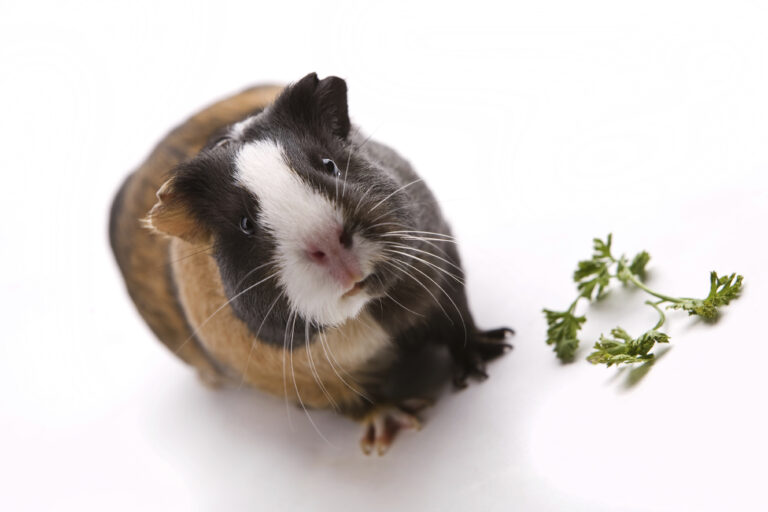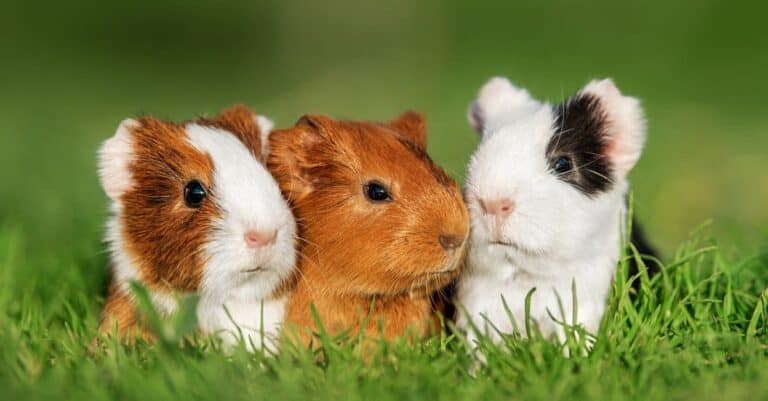Best Practices for Cleaning and Maintaining a Guinea Pig Cage
Are you a guinea pig owner looking for the best practices to keep your pet’s cage clean and well maintained? Having a clean and sanitary cage is incredibly important for keeping your guinea pig healthy and happy, and it’s essential to develop a routine for cleaning and maintenance.
In this article, we’ll discuss the best practices for keeping your guinea pig’s cage clean and well maintained. We’ll cover topics such as how often to clean the cage, what materials you should use for cleaning, and how to make sure your guinea pig stays healthy and safe.
With a few simple tips, you’ll be able to provide your pet with a comfortable and safe home. So, let’s get started and learn how to keep your guinea pig cage clean!
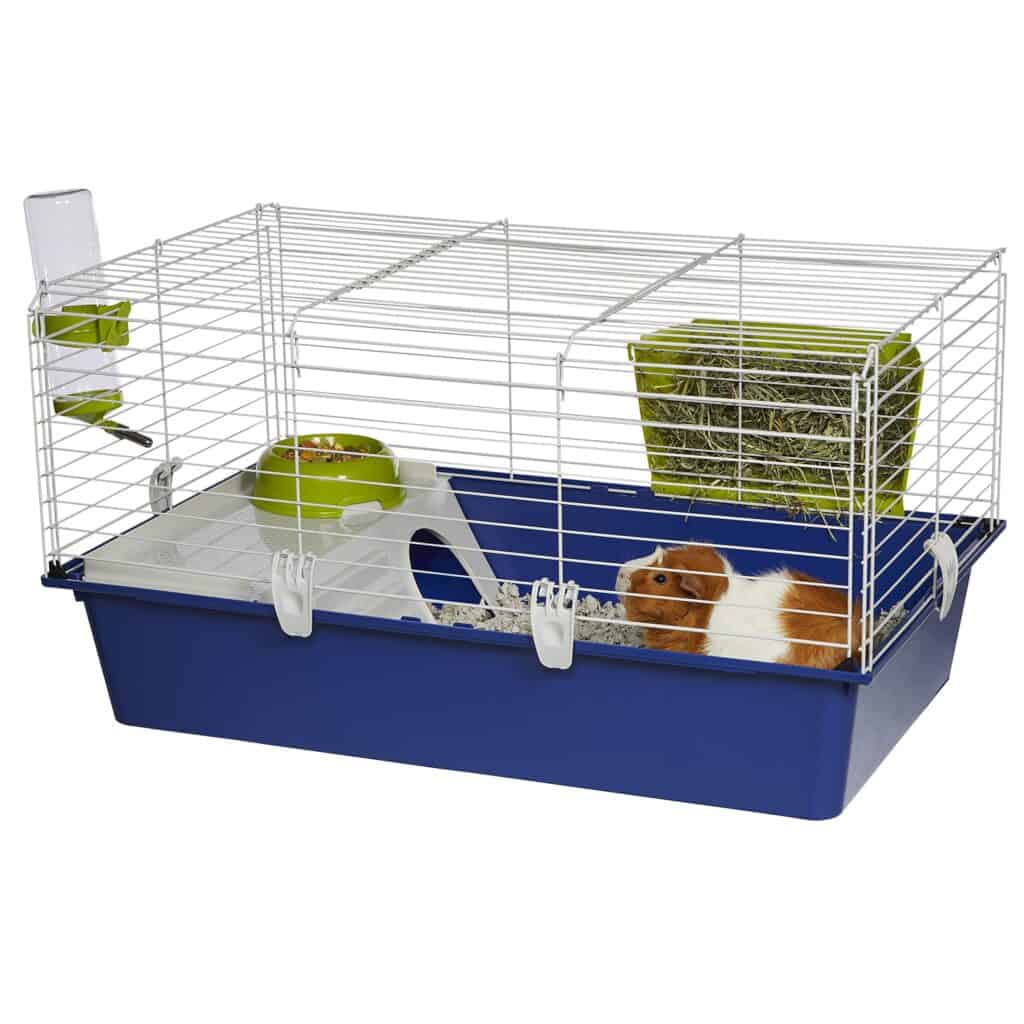
How Often to Clean the Cage
When it comes to cleaning your guinea pig’s cage, it’s important to establish a regular routine. The best practice is to clean the cage at least once a week, but more often is better. A weekly deep-cleaning is recommended to remove any debris, food, and droppings. During this weekly deep-cleaning, you should also thoroughly scrub any plastic parts, removing any dirt build up or stains.
In between the weekly deep-cleaning, you should also perform a daily maintenance routine. This routine should include spot-cleaning of any messes and removing spoiled food. Additionally, you should check the bedding for any soiling or wet spots and clean or change as needed.
While it may seem like a lot of work, a well-maintained cage helps keep your guinea pig healthy and happy. Taking the time to establish a regular cleaning routine will pay off in the long run.
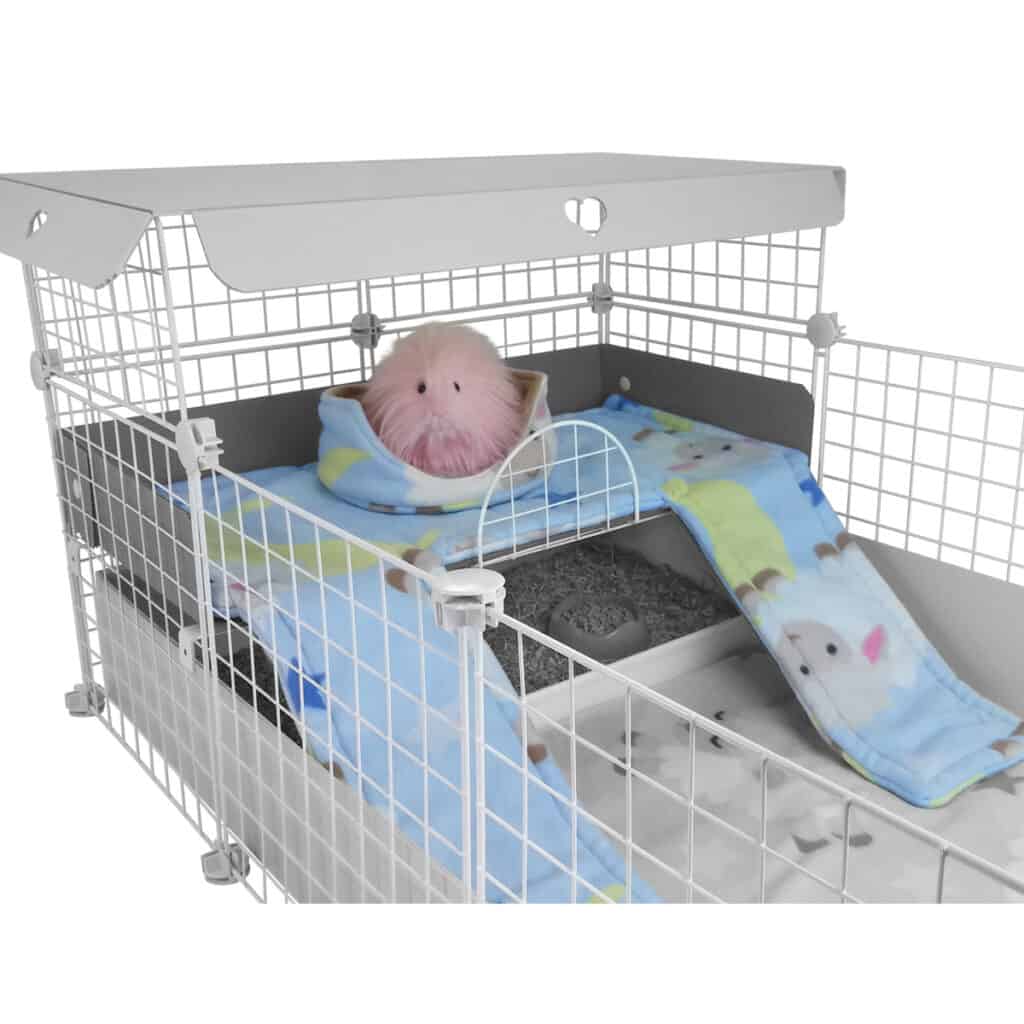
What Materials to Use for Cleaning
When it comes to cleaning your guinea pig’s cage, it’s important to use the right materials. You’ll need a mild, unscented soap, a brush or sponge, and towels. For a deep clean, you may want to use a small vacuum cleaner or steam cleaner.
It’s best to avoid using harsh chemicals, abrasive scrub pads, and scented soaps, as these can be harsh on your guinea pig’s sensitive skin. If you use soaps, be sure to rinse off the cage thoroughly after cleaning, and remember to replace the bedding after each cleaning. Additionally, it’s best to avoid using bleach, since it can be toxic to your pet.
Finally, make sure you use a safe and non-toxic cleaner. There are many safe and natural cleaning solutions available such as white vinegar, baking soda, and lemon juice that are effective and won’t harm your pet.
No matter what materials you choose, always make sure to wear protective gloves and keep your pet away from the area while cleaning. With the right materials and techniques, you can keep your guinea pig’s cage clean, safe, and well maintained.
Cleaning the Bedding and Toys
When it comes to cleaning the bedding in your guinea pig’s cage, it’s important to do so on a regular basis. Depending on how often your guinea pig uses its cage, you may need to clean it once a week or even more frequently.
When cleaning the bedding, it’s important to use a vacuum cleaner to pick up any debris or fur that has been left behind. You should also replace the bedding completely every one to two weeks. It’s best to use special guinea pig bedding, which is designed to be absorbent and free of potential allergens.
The same goes for toys and other materials in the cage. These should also be washed regularly and replaced if they become overly soiled. It’s best to use a mild detergent and warm water when cleaning toys, and to make sure they are thoroughly rinsed and dried before returning them to the cage.
Regular cleaning and sanitization of your guinea pig’s toys will ensure they stay safe and free of bacteria. Additionally, it’s important to check the toys regularly for damage and to replace any that have become too worn or broken.
Cleaning the Cage Walls and Floor
When cleaning the walls and floors of your guinea pig’s cage, it’s important to use the appropriate materials. You should avoid using any detergents or cleaners that contain strong scents or chemicals, as these can be dangerous for your guinea pig. Instead, use a mild soap and warm water to clean the walls and floors of the cage.
You may also want to invest in a pet-safe cleaner, which will be specifically designed for cleaning your guinea pig’s cage.
When cleaning the cage walls, use a soft brush to gently scrub away any dirt and debris. You may also want to use a vacuum cleaner with a soft brush attachment to ensure that all of the dirt is removed from the cage walls. Focus especially on the corners, where dirt tends to accumulate.
Additionally, make sure to clean the cage’s floor regularly with a mop and warm water solution. After cleaning, allow the walls and floors to dry completely before adding fresh bedding or other materials to the cage.
These simple cleaning tips will help to ensure that your guinea pig’s cage is always kept clean and comfortable. Additionally, be sure to give your guinea pig regular access to clean water and provide fresh food and treats every day. With proper cleaning and maintenance, your guinea pig will be able to live a healthy and happy life.
Sanitizing the Cage
Regularly sanitizing your guinea pig’s cage is one of the most important tasks of being a guinea pig owner. To properly sanitize the cage, you should empty it completely. Using a mild soap and warm water, scrub down all surfaces of the cage, including the walls and floor.
Use a small brush or a cloth to get into the nooks and crannies, as these can often harbor dirt and bacteria. Once the cage is cleaned, you should use a disinfectant to kill any remaining germs. Be sure to rinse the cage thoroughly with clean water and allow it to air dry before putting your guinea pig back in.
If possible, you should also replace the bedding, food dishes, and water bottles. Over time, these items can become contaminated with bacteria and can cause your guinea pig to become sick. You should also make sure to clean any toys or accessories that you keep in the cage. If you haven’t done so already, you should consider investing in a safe, non-toxic cleaner to use on these items.
Keeping your guinea pig’s cage clean and well-maintained is essential for their health and wellbeing. However, it’s important to remember that regular cleaning and sanitizing alone won’t keep your pet happy and healthy.
Be sure to also provide your guinea pig with a healthy diet and plenty of exercise. With a few simple tips, you can ensure that your guinea pig’s cage is always clean and safe.
Keeping your Guinea Pig Healthy and Safe
Are you a guinea pig owner looking for the best practices to keep your pet’s cage clean and well maintained? Having a clean and sanitary cage is incredibly important for keeping your guinea pig healthy and happy, and it’s essential to develop a routine for cleaning and maintenance. In this article, we’ll discuss the best practices for keeping your guinea pig’s cage clean and well maintained.
Firstly, you should clean the cage at least once a week. It’s important to remove any soiled bedding, food, and water and replace it with fresh material. You should also remove any toys or other items that are soiled or have been chewed on.
When cleaning the cage, you should use a mild soap and warm water, and make sure you rinse the cage thoroughly to avoid any residue. You should also use an appropriate cleaner or disinfectant to disinfect the cage and any items that you have removed.
When cleaning the cage, it’s important to make sure your guinea pig is not in the cage to avoid any potential stress or injury. You should also provide some fresh hay or grass for your guinea pig, as well as clean water, to help keep them healthy and safe. Additionally, you should check for any signs of illness or injury, such as unusual lumps or bumps, and take your guinea pig to the vet if any are found.
By following these best practices for keeping your guinea pig’s cage clean and well maintained, you can ensure that your pet stays healthy and content. With a few simple steps and regular maintenance, you can create a safe and sanitary environment for your guinea pig and give them the best chance of living a long and healthy life.

